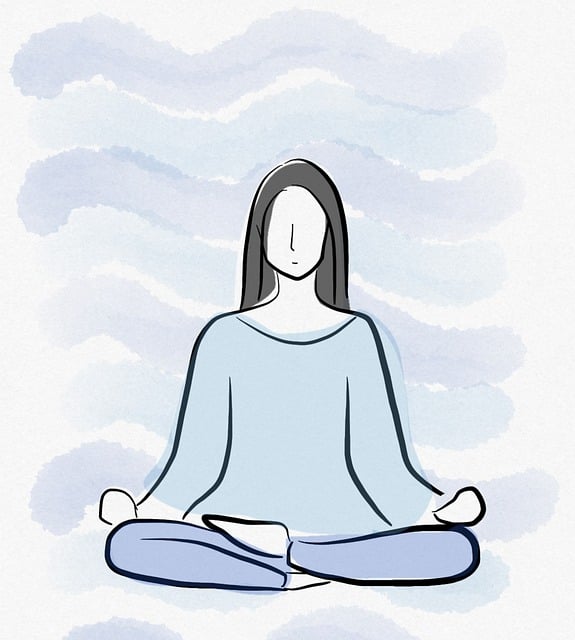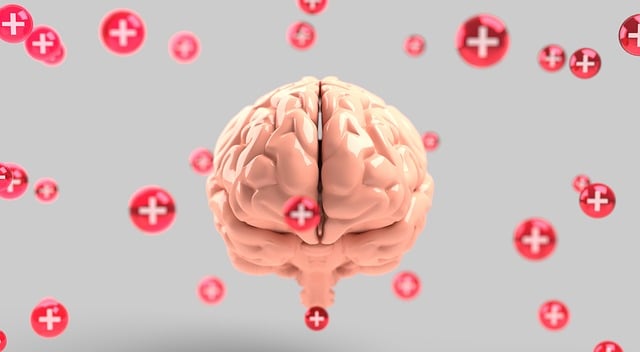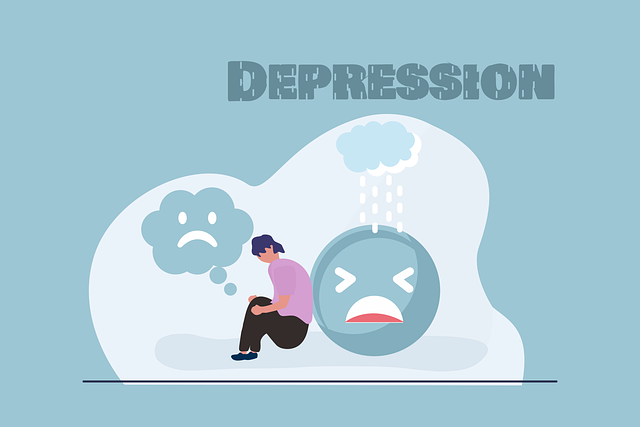Holistic mental health emphasizes the interconnectedness of mind, body, and spirit through various natural therapies. Techniques like mindfulness meditation, yoga, acupuncture, herbal remedies, nature-based therapies, and energy healing foster balance and self-healing. Scientific research supports ancient practices, showing that connecting with nature reduces stress, improves mood, and enhances overall well-being. Incorporating these holistic approaches, along with art, music, and movement therapies, provides a comprehensive and personalized method for achieving emotional stability and cultivating deeper connections with oneself and the natural world.
Discover the transformative power of nature-based therapies for achieving holistic mental health. This comprehensive guide explores various techniques that harness the healing potential of the natural world. From mindfulness practices in nature to herbal medicine and energy healing, learn how these ancient approaches can promote emotional balance and overall well-being. Uncover the benefits of art, music, movement therapies, and how to create a therapeutic outdoor space for your mental health journey.
Understanding Holistic Mental Health: A Comprehensive Approach

Holistic mental health is a comprehensive approach that considers the interconnectedness of the mind, body, and spirit. It recognizes that emotional well-being is influenced by various aspects of our lives, including physical health, social relationships, and environmental factors. Unlike traditional psychiatric treatments that often focus solely on managing symptoms, holistic therapy techniques aim to address the root causes of mental distress, fostering a sense of balance and harmony within an individual.
This approach involves integrating diverse practices such as mindfulness meditation, yoga, acupuncture, and herbal remedies to promote self-healing and resilience. By embracing natural therapy methods, individuals can develop coping strategies that are not only effective but also sustainable in the long term. Understanding holistic mental health encourages a more nuanced perspective on well-being, emphasizing the importance of nurturing both the mind and body for overall emotional and psychological stability.
The Power of Nature-Based Therapy

In today’s fast-paced world, natural therapy techniques are gaining prominence as a powerful approach to enhancing holistic mental health. Connecting with nature has an innate ability to rejuvenate the mind, body, and spirit—a concept that has been recognized for centuries but is now backed by scientific research. Simply spending time outdoors, amidst trees or near bodies of water, can significantly reduce stress levels, improve mood, and boost overall well-being.
Nature-based therapies offer a unique and gentle way to address various mental health concerns. Activities such as forest bathing (shinrin-yoku), gardening, and outdoor meditation allow individuals to immerse themselves in natural environments, fostering a sense of calm and tranquility. These practices not only provide an escape from the pressures of daily life but also encourage mindfulness and self-reflection. By harnessing the healing properties of nature, individuals can discover lasting strategies for managing stress, anxiety, and depression while cultivating a deeper connection with the world around them.
Techniques for Mindful Connection with the Natural World

Incorporating mindfulness into our daily lives is a powerful tool for enhancing holistic mental health. One effective way to do this is by cultivating a mindful connection with the natural world around us. Simply spending time outdoors, whether it’s in a park, forest, or even your backyard, can have profound effects on reducing stress and improving overall well-being. Techniques such as mindful walking, where you focus on the sensations of each step and the sounds and sights around you, can help ground you in the present moment.
Engaging your senses in a mindful way allows for a deeper appreciation of nature’s beauty and complexity. This can include observing the intricate patterns of leaves, listening to the songs of birds, or feeling the warmth of sunlight on your skin. By immersing yourself in these experiences, you foster a stronger connection not only with the natural environment but also with yourself, promoting a sense of calm and clarity that benefits your holistic mental health.
Herbal Medicine and Its Role in Mental Wellness

Herbal medicine, an ancient practice woven into the fabric of many cultures, plays a significant role in promoting holistic mental health. Plants and their extracts possess unique properties that can interact with the human body’s intricate systems, including those involved in mood regulation, stress response, and cognitive function. For centuries, various societies have relied on herbal remedies to soothe anxiety, lift spirits, and alleviate symptoms of depression. Modern research is beginning to unravel the scientific basis behind these traditional practices, uncovering compounds within plants that interact with neurotransmitters and receptors in the brain, offering potential therapeutic benefits for mental health conditions.
The integration of herbal medicine into modern holistic wellness practices provides a natural and often gentle approach to supporting mental well-being. Herbalists carefully select and combine specific herbs based on their knowledge of plant interactions and individual needs. This personalized approach can help individuals find relief from symptoms, enhance overall mood, improve sleep quality, and promote a sense of balance in their lives. As with any holistic therapy, herbal medicine is best used in conjunction with other mental wellness practices like mindfulness, exercise, and psychotherapy for a comprehensive approach to caring for the mind, body, and spirit.
Energy Healing Modalities for Emotional Balance

In the realm of holistic mental health, energy healing modalities play a significant role in achieving emotional balance. These alternative therapies focus on the intricate web of energy fields surrounding and within our bodies, aiming to restore harmony and promote well-being. Techniques such as Reiki, Quantum Healing, and Energy Field Therapy are based on the belief that emotional and physical health are intricately linked through subtle energy channels. By channeling and manipulating this energy, practitioners can facilitate a profound sense of relaxation, release trapped emotions, and encourage a state of equilibrium.
Energy healing sessions often involve light touch or focused intention as the practitioner works to clear energetic blockages associated with stress, anxiety, or past traumas. This non-invasive approach allows individuals to tap into their innate capacity for self-healing, fostering a deeper connection between mind, body, and spirit. Many find these modalities invaluable tools in their journey towards improved mental health and overall vitality.
Exploring Art, Music, and Movement Therapies

In the realm of holistic mental health, art, music, and movement therapies offer unique and powerful avenues for exploration and healing. These creative approaches recognize the deep connection between the mind, body, and spirit, fostering a harmonious restoration of well-being. Art therapy encourages individuals to express their emotions and thoughts through various mediums, allowing them to visually represent and process complex feelings in a safe and supportive environment. Similarly, music and movement therapies harness the universal language of rhythm and motion to stimulate emotional responses and promote cognitive function.
Engaging in these activities can be incredibly therapeutic for people from all walks of life. Whether it’s painting as a means of releasing pent-up emotions or dancing to ignite a sense of joy, each form of expression contributes to a holistic mental health practice. By embracing art, music, and movement, individuals can navigate their inner worlds, cultivate self-awareness, and ultimately embrace a more balanced and fulfilling life.
Creating a Therapeutic Outdoor Space

In today’s digital era, many are turning back to nature for solace and healing. Creating a therapeutic outdoor space offers a powerful way to enhance holistic mental health by reconnecting individuals with their surroundings. This can involve designing designated areas in gardens or parks that encourage mindfulness practices such as meditation, yoga, or simply sitting in silence amidst natural beauty. The incorporation of sensory elements like water features, fragrant herbs, and textured plants stimulates the senses, fostering a calming atmosphere that promotes relaxation and stress reduction.
Such outdoor spaces provide an opportunity to immerse oneself in nature’s healing powers. Research suggests spending time outdoors can lower stress hormones, boost mood, and improve overall well-being. By integrating natural elements into therapy practices, individuals can engage in activities that not only support mental health but also cultivate a deeper appreciation for the environment, creating a sustainable and holistic approach to wellness.
